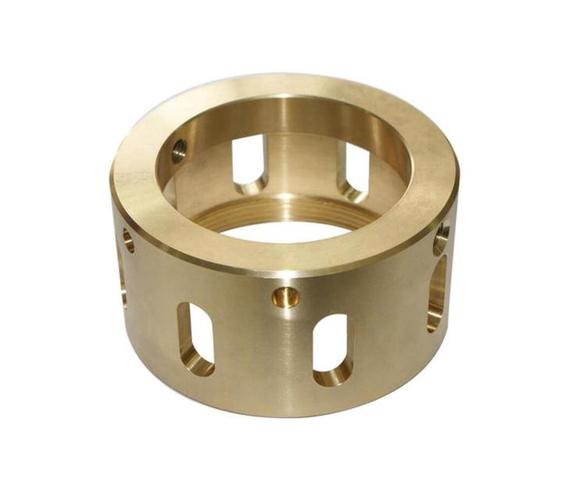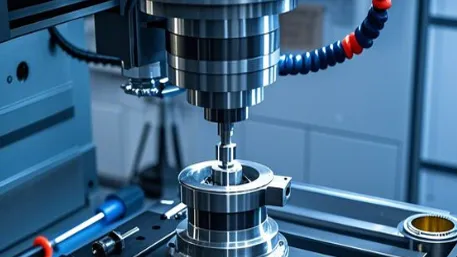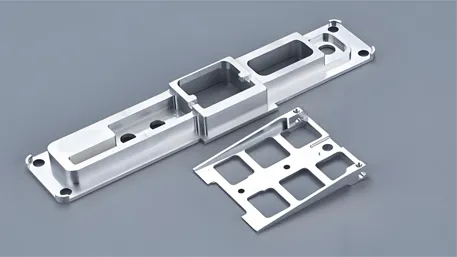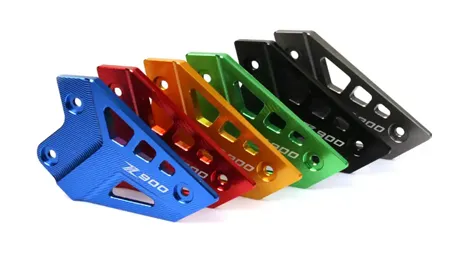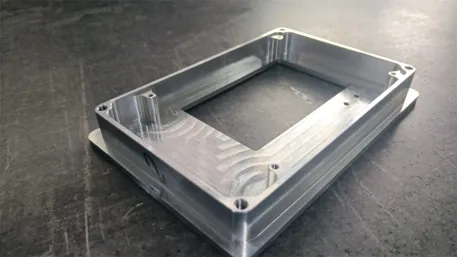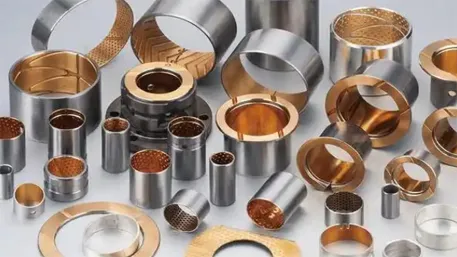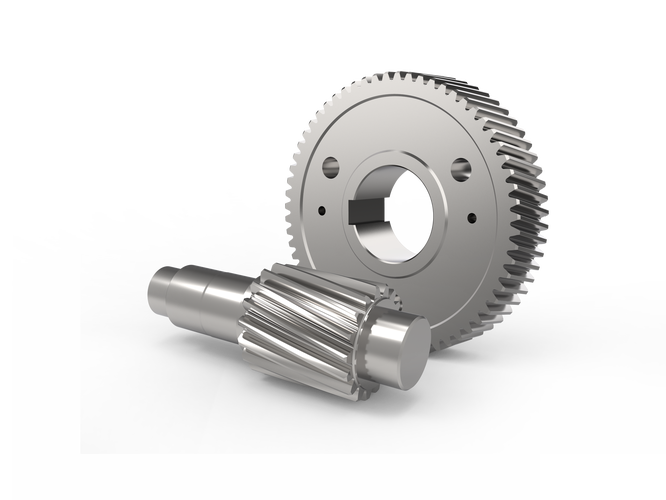In the rapidly evolving field of medical robotics, where precision, reliability, and biocompatibility are of utmost importance, custom brass parts have emerged as indispensable components. Leveraging the unique properties of brass, such as excellent corrosion resistance, good machinability, and specific electrical and thermal conductivity, and combining them with the high – precision capabilities of CNC (Computer Numerical Control) machining, these parts play a crucial role in enhancing the performance and functionality of medical robots. This article delves into the technical capabilities, customization process, material selection, quality control, and industry applications of custom brass parts for medical robots, highlighting their significance in modern healthcare.
I. Technical Capabilities: Meeting the Demands of Medical Robotics
(A) Ultra – High Dimensional Accuracy
CNC machining systems are meticulously calibrated to achieve exceptional dimensional accuracy in the production of brass parts for medical robots. With positioning accuracy reaching ±0.002mm and repeat positioning accuracy of ±0.003mm, we can fabricate parts with extremely tight tolerances. For example, when manufacturing tiny components for robotic surgical instruments, the dimensions of the joints and shafts can be maintained within these precise limits. This level of accuracy ensures seamless integration within the complex mechanical structures of medical robots, enabling smooth and precise movements during medical procedures.
(B) Complex Geometry Machining
Five – axis CNC machining technology enables the creation of brass parts with highly complex geometries required for medical robots. Whether it’s parts with intricate internal channels for fluid or gas transmission, components with ergonomic shapes for better handling, or parts with specialized surfaces for enhanced functionality, the five – axis system can execute these designs with precision. Compared to traditional machining methods, five – axis CNC machining reduces setup – related errors from ±0.01mm to within ±0.003mm. Moreover, it boosts production efficiency by over 60%, allowing for the rapid manufacturing of custom brass parts to meet the urgent demands of medical device development.
(C) Specialized Machining for Medical Applications
Brass parts for medical robots require specific machining techniques to meet the stringent requirements of the healthcare industry. CNC – controlled machining parameters are carefully optimized to ensure a smooth surface finish, minimizing the risk of bacterial adhesion. Specialized cutting tools with anti – corrosion coatings are used to prevent any potential contamination during the machining process. Additionally, CNC – guided post – machining processes, such as electropolishing, can be applied to further enhance the surface quality, making the parts easier to clean and sterilize, which is essential for maintaining the hygiene standards in medical environments.
II. End – to – End Customization: Tailored to Medical Requirements
(A) In – Depth Requirement Analysis and Design Conceptualization
When you approach us with your needs for brass parts in medical robots, our experienced engineering team engages in detailed discussions with medical professionals, robotics engineers, and other stakeholders. We take into account factors such as the specific medical application (surgery, rehabilitation, diagnosis), the operational environment (sterile operating rooms, patient care areas), and the functional requirements of the robot. Using state – of – the – art CAD/CAM software, we generate multiple design concepts that not only meet the mechanical and functional needs but also comply with medical regulations and standards. We then collaborate closely with you, refining the designs until they perfectly align with your vision for the medical robot.
(B) Strategic Material Selection and Cost Analysis
Based on the finalized design, we recommend the most suitable brass alloys for your custom parts. For medical applications, biocompatibility is a key consideration. Alloys like C26000 (cartridge brass), with its good corrosion resistance and relatively low reactivity, can be a suitable choice. However, for parts that require higher strength and wear resistance while still maintaining biocompatibility, we may recommend modified brass alloys or special surface treatment options. Simultaneously, we conduct a detailed cost analysis, factoring in material costs, the complexity of the machining process, and the need for additional treatments or certifications, to provide you with a transparent and competitive quote.
(C) Precision Manufacturing and Order Tracking
Once you approve the design and quote, production commences. You can monitor the progress of your order in real – time through our dedicated online tracking platform. Our skilled technicians adhere to strict manufacturing standards, using advanced CNC turning, milling, and EDM (Electrical Discharge Machining) machines to produce brass parts that meet the highest quality benchmarks. Throughout the production process, we ensure that all operations are carried out in a clean and controlled environment to prevent any contamination. We keep you informed at every stage, from raw material procurement to the final inspection.
(D) Rigorous Quality Assurance and Timely Delivery
After production, each custom brass part for medical robots undergoes a rigorous quality inspection. Only parts that meet our exacting standards and comply with medical regulations are shipped to you. We perform dimensional inspections using coordinate measuring machines (CMMs) to ensure that all critical dimensions are within ±0.002mm. Surface finish quality is carefully evaluated to ensure it meets the requirements for hygiene and functionality. In addition, we conduct biocompatibility tests, such as cytotoxicity tests, to ensure that the parts do not cause any adverse reactions in the human body. We also offer comprehensive after – sales support, addressing any concerns you may have during the product’s lifecycle.
III. Strategic Material Selection: Prioritizing Biocompatibility and Performance
(A) C26000 (Cartridge Brass)
C26000 brass, composed of approximately 70% copper and 30% zinc, offers a good balance of properties suitable for many medical robot applications. Its corrosion resistance helps protect the parts from the harsh sterilization processes and the humid environment in medical facilities. While not inherently biocompatible in all cases, with proper surface treatment, such as passivation or coating with biocompatible materials, it can be made suitable for use in medical devices. Its good formability also allows for the creation of complex shapes required for the intricate designs of medical robots.
(B) Modified Brass Alloys
For applications where higher strength, wear resistance, and enhanced biocompatibility are required, modified brass alloys can be developed. These alloys may incorporate additional elements or undergo special heat – treatment processes to improve their mechanical properties and reduce the risk of adverse reactions with the human body. For example, alloys with reduced lead content or the addition of biocompatible elements like titanium or nickel (in carefully controlled amounts) can be used to meet the specific demands of medical robotics.
(C) Surface – Treated Brass
Surface treatment plays a crucial role in enhancing the biocompatibility and performance of brass parts for medical robots. Techniques such as electropolishing can create a smooth, mirror – like surface that is less likely to harbor bacteria. Coating the brass parts with biocompatible materials, such as medical – grade polymers or ceramic coatings, can further improve their resistance to corrosion and wear while ensuring they are safe for use in the human body.
IV. Stringent Quality Control: Ensuring Safety and Reliability
(A) Raw Material Inspection
All incoming raw materials for brass parts in medical robots are subject to strict quality checks. We use spectroscopic analysis to verify the chemical composition of the brass alloys, ensuring that they meet the required standards and do not contain any harmful contaminants. Additionally, we conduct tests for biocompatibility – related properties, such as the release of ions into simulated body fluids. Hardness testing, tensile testing, and microstructure analysis are also performed to ensure the material’s integrity and suitability for the intended medical application.
(B) In – Process Monitoring
Throughout the manufacturing process, we employ statistical process control (SPC) techniques to monitor key manufacturing parameters. Regular sampling and data collection help us identify and correct any potential issues promptly. We closely monitor parameters such as cutting speeds, feed rates, tool wear, and the temperature during machining to ensure consistent quality. In addition, we maintain strict control over the cleanliness of the production environment, using air – filtration systems and regularly sanitizing equipment to prevent contamination.
(C) Final Product Validation
Before shipping, each part undergoes a comprehensive inspection. We use CMMs to verify dimensional accuracy, ensuring that all critical dimensions are within ±0.002mm. Surface finish quality is carefully inspected to ensure it meets the high – hygiene standards required for medical applications. Biocompatibility tests are repeated to confirm that the parts do not pose any risks to human health. Non – destructive testing methods, such as ultrasonic testing, are also used to detect any internal defects that could affect the performance or safety of the medical robot. Only parts that pass all these tests are considered ready for delivery.
V. Industry Applications: Transforming Medical Robotics
(A) Robotic Surgery
In robotic surgery, custom brass parts are used in the construction of robotic arms, joints, and instruments. The high precision of CNC – machined brass parts ensures smooth and accurate movements of the robotic surgical tools, allowing surgeons to perform minimally invasive procedures with greater precision and control. The corrosion resistance of brass ensures that the parts can withstand the repeated sterilization processes required between surgeries, maintaining their functionality and integrity over time.
(B) Rehabilitation Robotics
For rehabilitation robots, such as exoskeletons and robotic limbs, custom brass parts contribute to the strength and durability of the devices. These parts are used in the joints and structural components, enabling the robots to support the weight of the patient and assist in movement. The biocompatibility of the brass parts, especially when properly treated, ensures that they do not cause any discomfort or allergic reactions during extended use by patients.
(C) Diagnostic Robotics
In diagnostic robots, brass parts are utilized for their electrical and thermal conductivity properties. For example, in robots that perform temperature – sensitive diagnostic tests or electrical impedance measurements, brass components can help ensure accurate and reliable results. The precision of CNC machining also allows for the creation of complex electrical circuits and connections within the diagnostic robots, enhancing their functionality and performance.
VI. Frequently Asked Questions (FAQ)
(A) What is the typical precision of custom brass parts for medical robots?
Our CNC machining can achieve a dimensional tolerance of ±0.002mm, ensuring precise fit and optimal performance within medical robot systems.
(B) How do you ensure the biocompatibility of brass parts?
We select appropriate brass alloys and apply surface treatment techniques, such as passivation, electropolishing, and coating with biocompatible materials. Additionally, we conduct comprehensive biocompatibility tests to ensure the parts meet the required standards for use in the human body.
(C) What is the lead time for custom brass parts in medical robots?
Lead times vary depending on the complexity of the design and order quantity. Simple designs can be completed in 5 – 7 days, while more complex ones may take 10 – 14 days. Rush orders are available upon request to meet urgent project deadlines.
(D) Can CNC machining handle complex designs for medical robot brass parts?
Yes, our five – axis CNC machines are capable of fabricating brass parts with highly intricate geometries, including complex internal structures, ergonomic shapes, and specialized electrical and fluid – handling components, to meet the unique requirements of medical robotics.
(E) How much does it cost to customize brass parts for medical robots?
Costs are determined by factors such as material selection, design complexity, the need for special surface treatments or certifications, and production volume. Our team will provide a detailed cost analysis based on your specific project requirements.
VII. Customer Testimonials
A leading medical device manufacturer approached us to develop custom brass parts for their new robotic surgical system. Our team worked closely with their engineering and medical teams to design and manufacture parts that met the strict requirements of the healthcare industry. The high – precision brass parts we provided enabled the robotic arms to move with exceptional accuracy during surgeries, resulting in improved surgical outcomes and reduced patient recovery times. The manufacturer was highly satisfied with the quality and performance of our custom brass parts, and the new surgical system has received positive feedback from surgeons and patients alike.
Another company specializing in rehabilitation robotics partnered with us to create custom brass components for their exoskeleton devices. Our custom – made brass parts, with their enhanced strength and biocompatibility, significantly improved the durability and comfort of the exoskeletons. Patients using these devices reported better mobility and a more natural walking experience. The company has seen a significant increase in customer satisfaction and sales, and they continue to rely on our expertise for their ongoing product development.
Reach Out Now for Your Custom Brass Parts for Medical Robots!
If you are involved in the development of medical robots and are in need of high – quality, precision – engineered brass parts, our team of experts is ready to assist you. We offer a comprehensive end – to – end service, from design and material selection to manufacturing and quality assurance. Contact us today to discuss your project requirements and take the first step towards creating innovative and reliable medical robots that will revolutionize healthcare.
